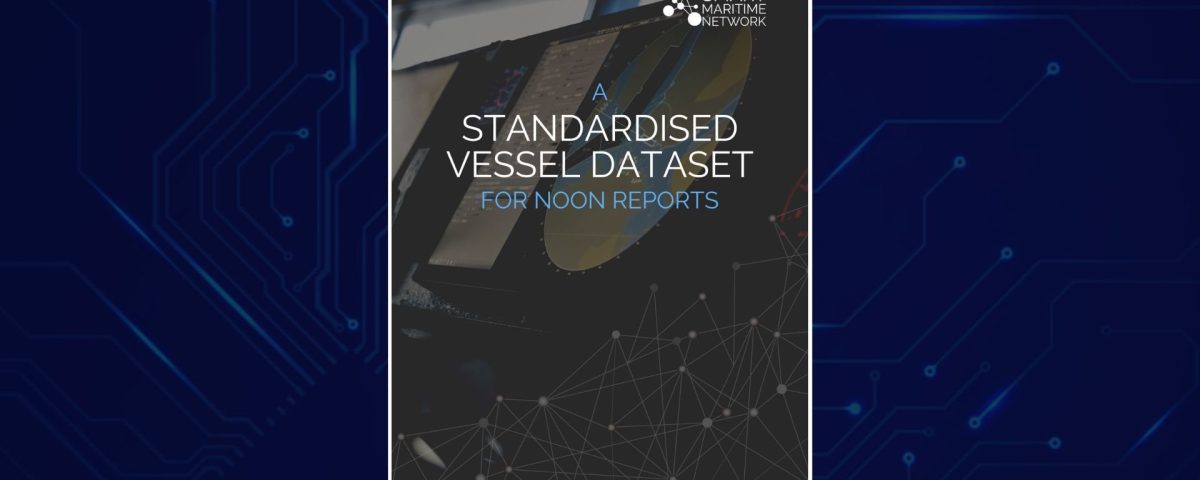

Cross-industry body publishes Version 1.0 of standardised list of data points for Noon Reports following year-long consultation process with BIMCO and IMO.
The Smart Maritime Council has released Version 1.0 of the Standardised Vessel Dataset (SVD) for Noon Reports, featuring a host of updates and refinements following the completion of a 12-month consultation process involving BIMCO and IMO, including the addition of standardised IMO Data Numbers for more than 100 common Noon Reporting data fields.
The launch of Version 1.0 follows on from the publication of a ‘beta’ in February 2023 to invite wider industry feedback before the launch of this first official version of the model. The Council worked in close collaboration with BIMCO and IMO’s Expert Group on Data Harmonisation (EGDH) during the consultation process, a project that also included the expansion of the IMO Compendium on Facilitation and Electronic Business (IMO Compendium) with a range of Noon Reporting data fields for the first time. The updated SVD is fully aligned with that new IMO model.
The IMO Compendium reference model is a standardised collection of data sets created to harmonise formats for maritime digital information, with its most recent version incorporating a new list of Noon Reporting data points published by the 48th session of the IMO Facilitation Committee (FAL) in April 2024.
Each item in the new Version 1.0 of the Standardised Vessel Dataset (SVD) for Noon Reports now includes four standardised elements — an IMO Data Number, a Data Element name, a Standard Unit, and a unique ISO 19848 ID tag — linked to the official IMO reference model, creating a powerful open and non-proprietary list of standardised datapoints for the maritime industry that can be freely used by all stakeholders.
In addition to ISO 19848, the SVD list also incorporates a range of existing standards within the model, including UN LOCODE, IMO Code Lists, and various ISO reporting methods – such as ISO 8601 (Date and Time Format), ISO 6709 (Standard representation of geographic point location by coordinates), ISO 19018 (Ships and marine technology — Terms, abbreviations, graphical symbols and concepts on navigation), and ISO 80000 (Quantities and units).
Wilhelmsen Group company Ceataec, a member of the Smart Maritime Council, has built an open-source library of free tools on GitHub for companies looking to apply the standard within their own digital projects. Maritime software companies are encouraged to add their own libraries to this open-source resource, to allow users or potential customers with standardised data sets to connect to their application platforms more easily, without the need for further mapping or customisation.
“It has been a fantastic experience to work with this group of passionate maritime industry professionals on this project over the last year, demonstrating their dedication to creating these free resources to support and accelerate the ongoing digitalisation of the shipping sector,” said Rob O’Dwyer, Chairman of the Smart Maritime Council.
“In addition to the companies in our own Smart Maritime Council, my heartfelt thanks go to the team at BIMCO that have worked tirelessly to push the standardisation agenda forward, and to the members of the IMO’s Expert Group on Data Harmonisation for taking on this project to expand the IMO Compendium to support a much wider range of potential use cases.”
“The hope now is that the industry – shipping companies, ports and technology vendors alike – will embrace the data standards now available to remove some of the current pain points and wasted resources involved in maritime data sharing, widening access to digital tools and creating new opportunities to improve the efficiency and sustainability of ship operations for everyone’s benefit.”
Jeppe Skovbakke Juhl, Manager of Safety and Security at BIMCO, also welcomed the release of these new data standards. “Accelerating digitalisation of the shipping industry is crucial as we work towards a more efficient industry and towards cutting our emissions,” he said.
“The new standardised data model offers a very important tool that can help remove one of the big barriers that prevent digitalisation progress and effective collaboration between ports and ships. It is an example of how we can arrive at solutions that can make a difference when we collaborate, and we hope the data standards will be supported and widely adopted by all players involved.”
The Standardised Vessel Dataset (SVD) for Noon Reports model can be accessed and downloaded for free from a dedicated page on the Smart Maritime Network website, alongside a white paper outlining the project, links to the open source library, and other supporting resources for application of the standard.
Haber ve Resim Kaynağı: https://www.bimco.org/news/priority-news/20240528-smart-maritime-network
29.05.2024


